Travel Guide: Buenos Aires
Questions This Article Answers
What's the official name of Buenos Aires?
What is the Casa Rosada?
Where is the Obelisco located?
Where is the Cementerio de La Recoleta located?
Who are the porteños?
Where can I dance tango in Buenos Aires?
What is El Superclásico?
Buenos Aires: A Cultural Melting Pot
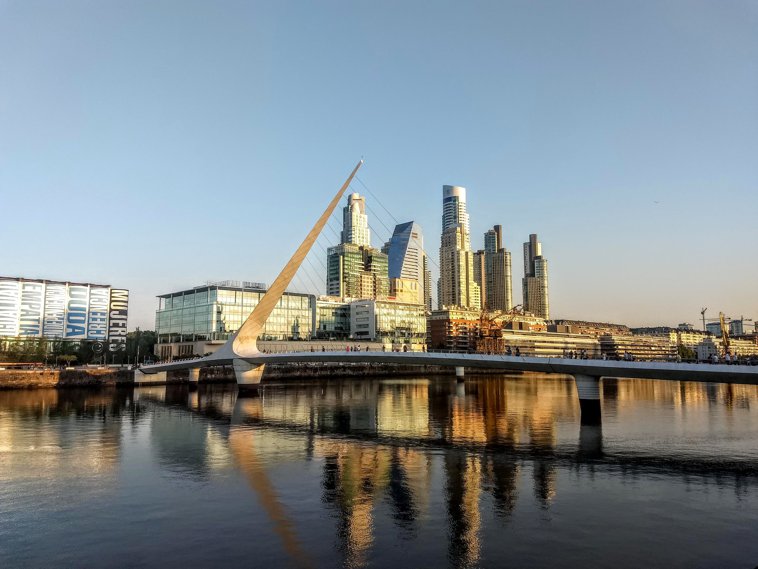 Buenos Aires is the capital of Argentina(Argentina) and one of the cultural hubs of Sudamérica(South America). Its official name is Ciudad Autónoma de Buenos Aires(CABA) (Autonomous City of Buenos Aires).
Buenos Aires is the capital of Argentina(Argentina) and one of the cultural hubs of Sudamérica(South America). Its official name is Ciudad Autónoma de Buenos Aires(CABA) (Autonomous City of Buenos Aires).
The Capital Federal(Federal Capital), as it’s also known, is the seat of the Argentinian government. With over 3 million inhabitants, Buenos Aires is the most populated city in the country. It is surrounded by the Área Metropolitana de Buenos Aires(AMBA) (Buenos Aires Metropolitan Area), also known as Gran Buenos Aires(Greater Buenos Aires), making up a total population of over 13 million.
Located on the shore of the Río de la Plata(River Plate), the city has constantly received inmigrantes(immigrants) since the end of the 19th century, mainly españoles(Spanish) and italianos(Italians), making it a cultural crisol(melting pot).
Now, let’s explore Buenos Aires and its main attractions!
La Boca
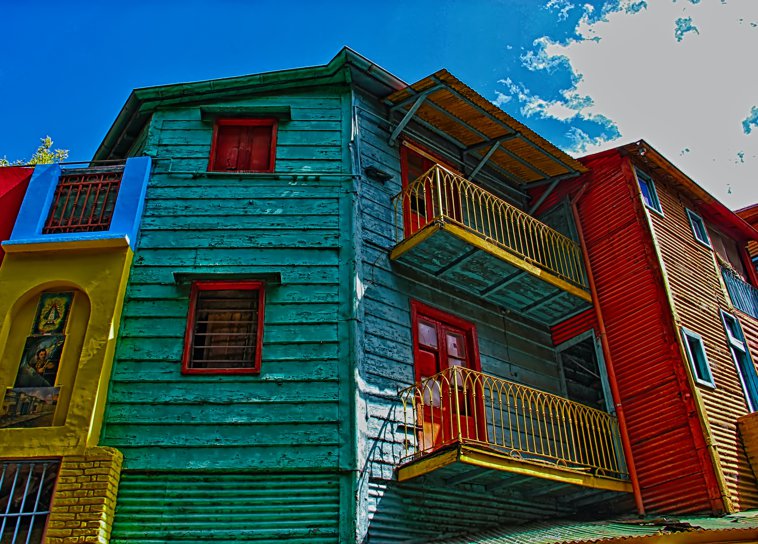
Many of the immigrants who arrived by ship at the end of the 19th century first landed in La Boca(La Boca). This colorful barrio(neighborhood) is famous for Caminito(Caminito), a walkway along which you can see brightly painted houses and the work of local artists.
San Telmo
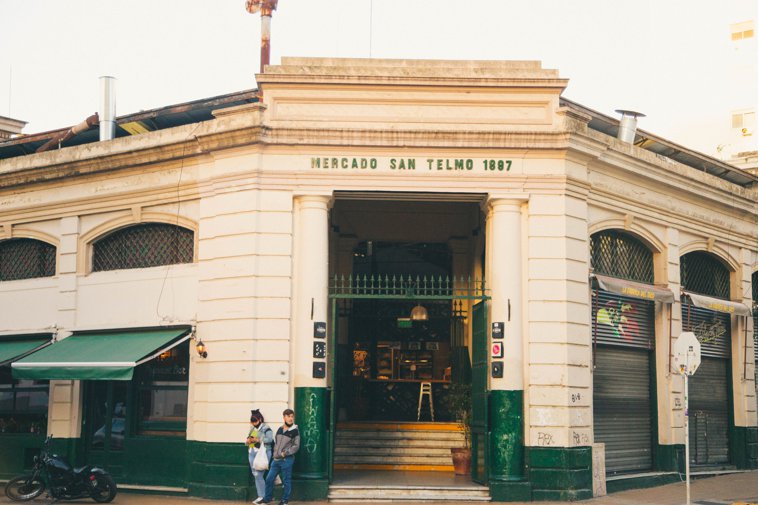
Not far from La Boca stands San Telmo(San Telmo), home of picturesque old buildings, cobblestone streets, the mercado de San Telmo(San Telmo Market), and the Sunday feria de San Telmo(San Telmo Street Fair) on calle Defensa(Defensa Street).
Plaza de Mayo and Casa Rosada
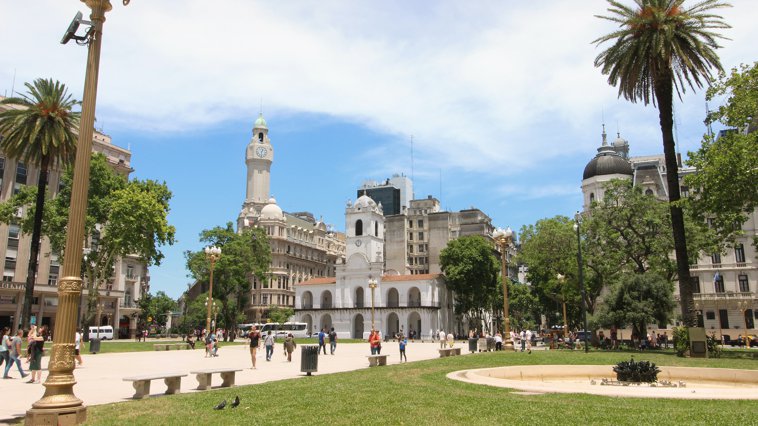
If you walk northwards along calle Defensa in San Telmo you’ll reach Plaza de Mayo(May Square), one of the centers of Argentinian politics. Here you’ll find the emblematic Casa Rosada(Pink House), the official workplace of the presidente de la Nación(President of the Nation); the Palacio de Gobierno de la Ciudad Autónoma de Buenos Aires(Buenos Aires City Hall), which was the seat of the government of the city of Buenos Aires until 2015; and the Cabildo(Cabildo), the former seat of the government during colonial times.
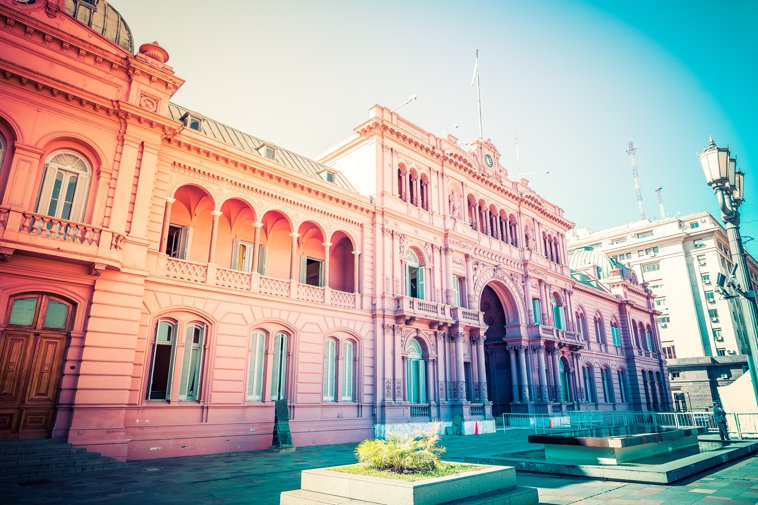
At the square you’ll also find the Catedral Metropolitana de Buenos Aires(Buenos Aires Metropolitan Cathedral), which houses the mausoleum of José de San Martín(José de San Martín), the Padre de la Patria(Father of the Homeland) and Libertador(Liberator) of Argentina, Chile(Chile), and Perú(Peru).
Avenida 9 de Julio
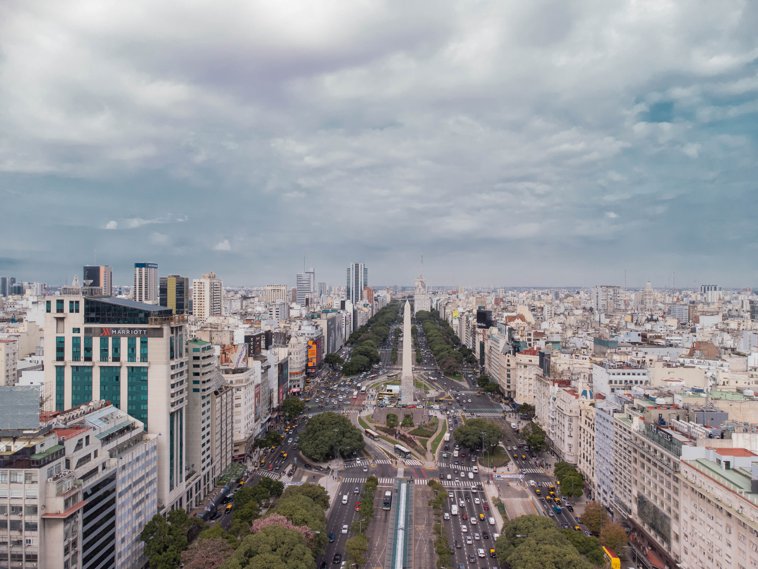
If you walk westwards from Plaza de Mayo you’ll reach avenida 9 de Julio(July 9 Avenue), considered one of the avenidas más anchas(widest avenues) in the world.
In the middle of the avenue, you’ll find the emblematic Obelisco(Obelisk), and nearby stands the world-famous Teatro Colón(Columbus Theater).
Avenida Corrientes
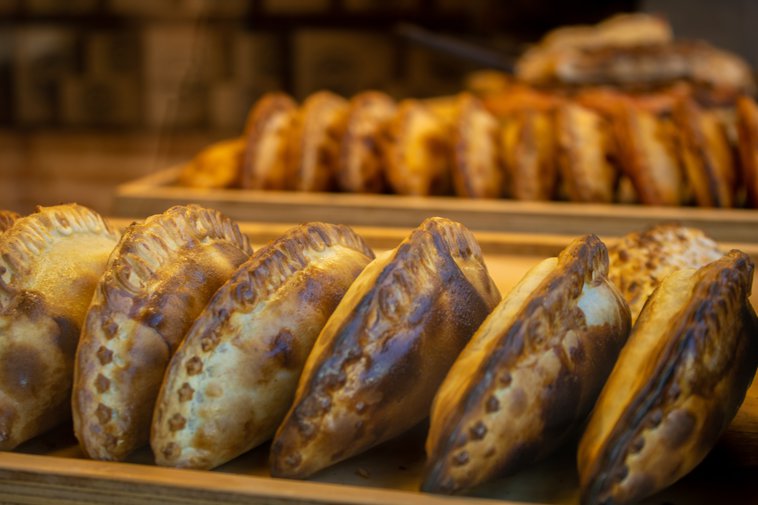
From the Obelisco you can start your walk along avenida Corrientes(Corrientes Avenue), a bustling cultural avenue akin to Broadway. Here you can eat pizzas and empanadas(empanadas) at the famous pizzerias(pizzerias), attend a show at one of the many teatros(theaters), and visit the librerías(bookstores), which are open until late in the night.
Recoleta
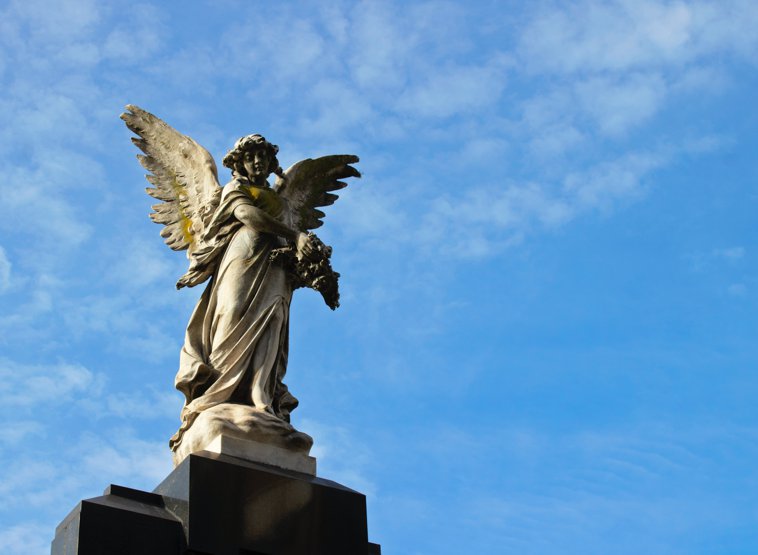
Among the elegant buildings of the affluent barrio of Recoleta(Recoleta), you will find the famous Cementerio de la Recoleta(La Recoleta Cemetery). Besides being the resting place of important Argentinian figures, it's known for its beautiful mausoleums and statues.
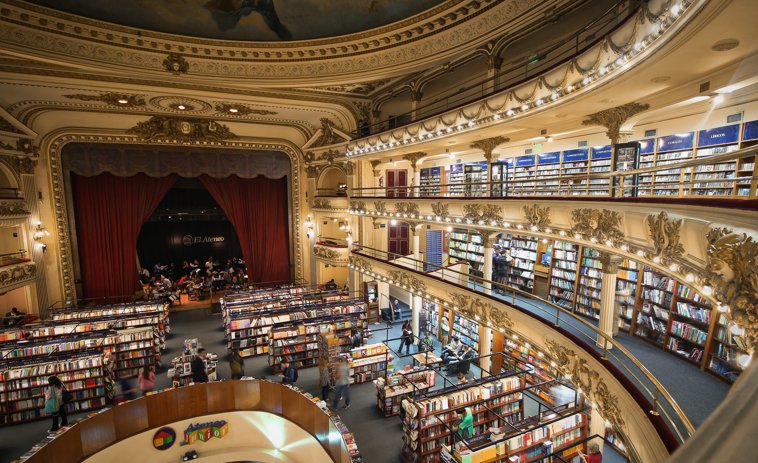
In Recoleta you’ll also find El Ateneo Grand Splendid(El Ateneo Grand Splendid), a former teatro that was turned into a beautiful bookstore.
Palermo
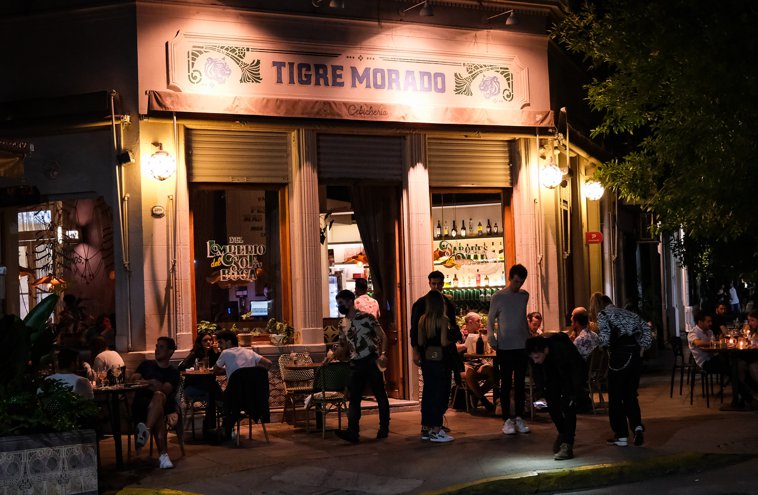
If you want to experience the vibrant vida nocturna(nightlife) in Buenos Aires, Palermo(Palermo) is the place to go. A lively area from the afternoon until late into the night, this barrio offers all kinds of negocios(stores), bares(bars), restaurantes(restaurants), and boliches(nightclubs).
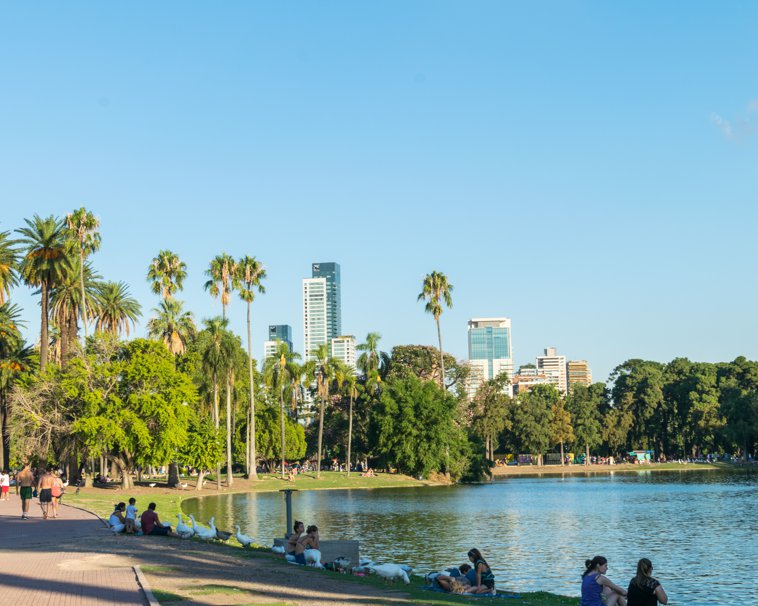
Porteños, as natives of Buenos Aires are colloquially called, enjoy spending weekends and sunny days at the Bosques de Palermo(Palermo Woods). In these parks you’ll find large areas of grass, trees, and lagos(lakes) as well as a rosedal(rose garden), a planetario(planetary), the Jardín Japonés(Japanese Garden), and a zoológico(zoo).
Asado
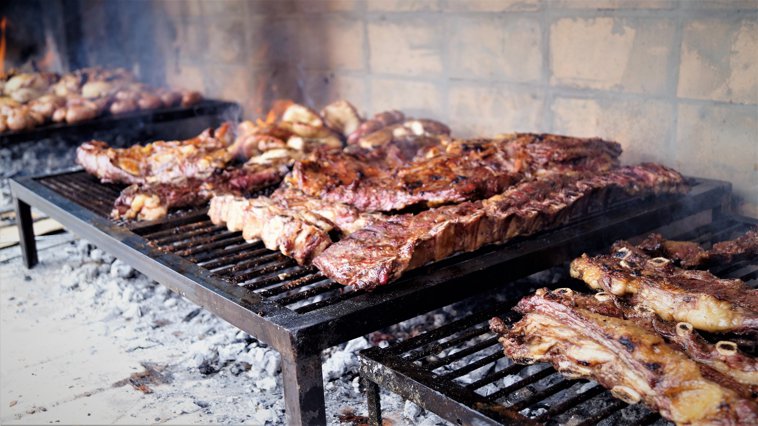
Argentina is world-famous for the quality of its carne(meat). Buenos Aires abounds with parrillas(grillrooms) in which you can treat yourself to the renowned asado(grilled meat). If you’re a vino(wine) lover, you’ll find great wine to pair your meat with.
Tango
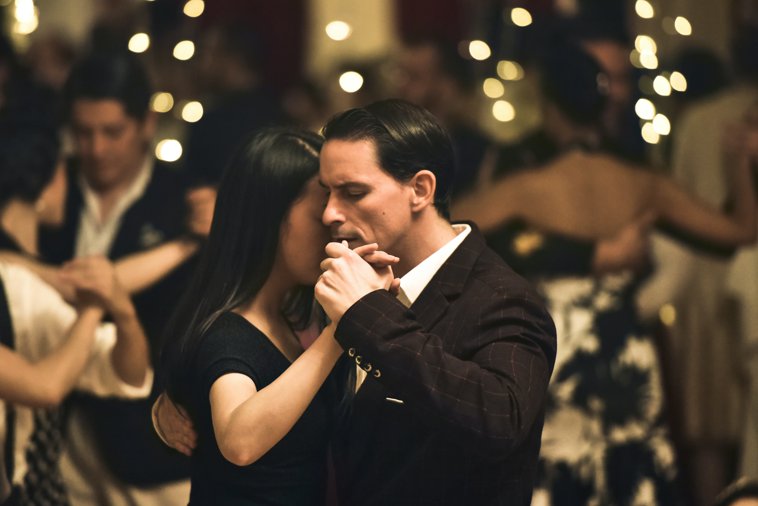
One of the words that first comes to mind when you hear the names Buenos Aires and Argentina is tango(tango). You can find shows of this sensual dance in La Bocaand San Telmo, and if you want to join in you can do so at one of the many milongas(tango dance events) throughout the city.
Fútbol
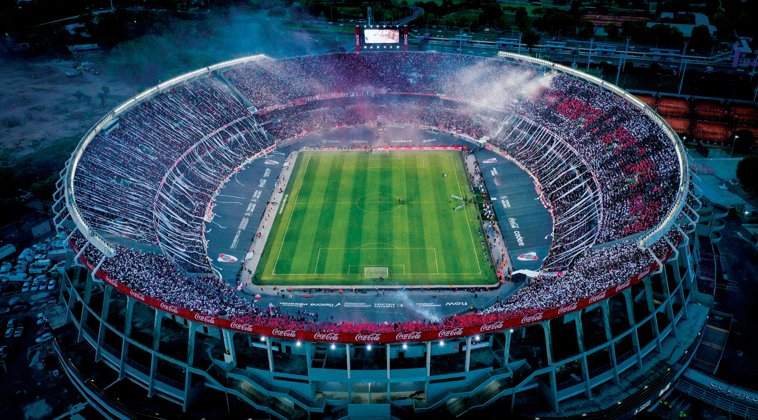
Besides tango, Argentinians are also known for their passion for fútbol(soccer). The fierce derby between the rival local teams Boca Juniors (Boca Juniors) and River Plate (River Plate), called el Superclásico(The Superclassic), is a must-watch for soccer and sports fans.
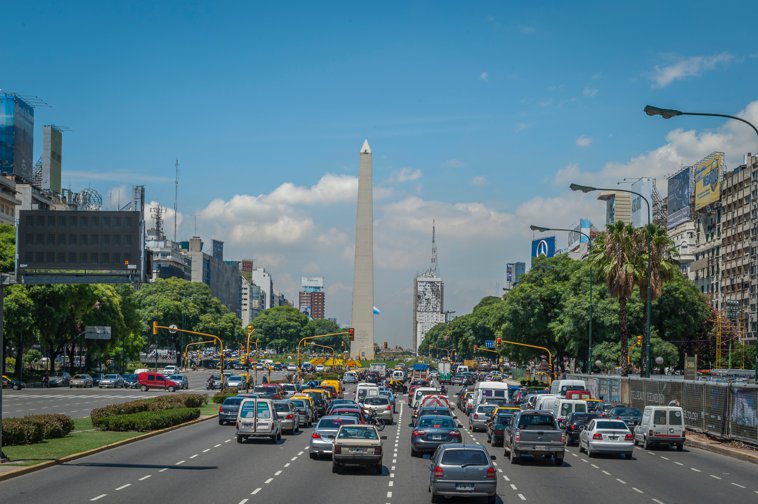
Vocabulary Related to Buenos Aires
Check out the following articles for more great destinations to consider!














